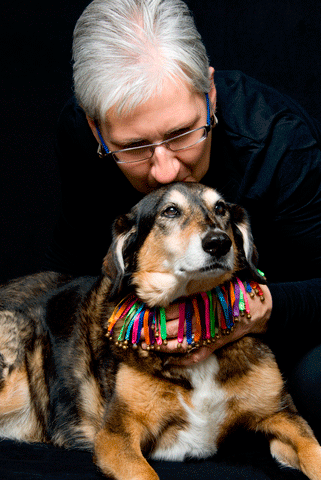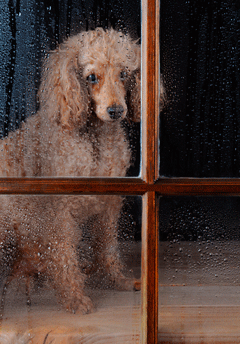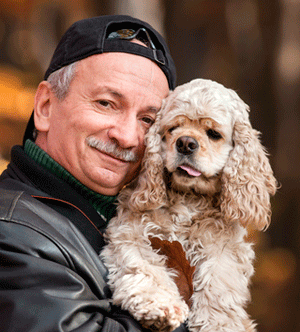
Changes In Older Dogs
Gretchen Heuring | ElderThink
We change some as we grow older and so do our pets. There are ways to improve their quality of life and there might be some lessons here for us humans too.
How Your Old Dog Looks
We can see life changes in our pets. Approaching age seven, larger dogs often begin to grey around the muzzle and ears. He might sleep more, but dogs seem to be aways sleeping. None of us age all at once. You wouldn't compare a 70-year-old man to a 95-year-old man woud you? You dog will age slowly enough that you might not even notice the process. One day you look at him and he looks "old." Maybe you love him so much you didn't notice him changing.
How he behaves
Unless he is sick, your dog will always greet you at the door and he will have flashes of puppy-like energy from time to time. You might even see him racing around the yard or accross the dog park for no apparent reason. He will get tired sooner and flop down in a safe place, drifting into doggy snores. Always he will be your friend. He will defend you, walk beside you and sleep at your feet. He will want you to love him, take him for exercise and provide food and water. He will move at a slower pace, eat a little less, and need more water than when he was a pup.
How he feels
It's easier for older dogs to get sick, so don't hesitate to take him to the veteranarian if you think he is unwell. Sometimes older dogs need more dental care so you should step up those teeth cleanings and inspections. Pay attention to changes in his breath or his coat. If he has trouble with his joints, he may stand up slowly and even groan a little. There are meds that will make him more comfortable.
The most common physical problem with old dogs is pain in the joints. A ramp for climbing up or down (vehicles or furniture) will make his life easier. A firm orthopedic foam bed will help reduce the pressure on his joints and make getting up in the morning a lot better. Elevation of his food and water bowls can help too as arthritis in the shoulders and neck is fairly common. Nutrition supplements can make him more comfortable too. Look for Glucosomine HCI and Chondroitin Sulfate. Don't forget to give him lots of extra love. You can be sure he will love you right back.


 The RedRover Relief program provides funding to Good Samaritans, animal rescuers and pet owners to help them care for animals in life-threatening situations. Learn more about our RedRover Relief grants.
The RedRover Relief program provides funding to Good Samaritans, animal rescuers and pet owners to help them care for animals in life-threatening situations. Learn more about our RedRover Relief grants.
